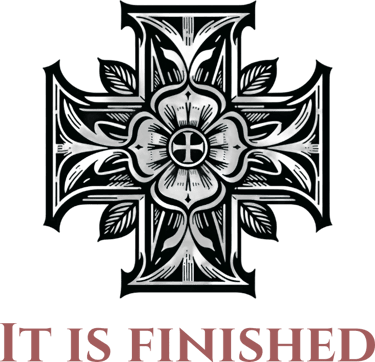
Divine Service Explained
Discover the historical foundations of our liturgy and the reasons for it
The Divine Service
Historically, the liturgical form of church worship, commonly called, “The Divine Service”, can be traced back all the way to the age of the Apostles. The word, “Liturgy” is derived from the compound Greek word, (spelled out here phonetically), Lay-terg-ee-ah, which, when separated into it’s individual parts, (lay-ow-s) and (er-go), meaning, respectively, “people” and “work”, when used in the singular form, literally means, “A person’s work”.
In pagan Greek culture the Lay-terg-ee-ah was a charitable gift or a lavish public service that a wealthy citizen would give or do for the purpose of blessing the inhabitants of his city. He would, perhaps, build a bridge or, commission ships to be built for the navy or, build a temple, etc. As Christianity spread beyond the borders and culture of Israel, Greek Christians adopted this term and began to use it as a template for the worship service.
• Invocation: “In the Name of the Father and of the + Son and of the Holy Spirit.” The first gift that the Lord gives us in His service to us is His Name. With the invocation of His Name, we are reminded that it was with this Name that He baptized us and also that where the Lord places His Name, there He is to bless. In everything that follows, God is delivering the gifts that He gives us by His Name.
• The Sign of the Cross: We trace the sign of the cross upon ourselves with our hand as we say “the Son” to remind us that Jesus Christ died on the cross for our sins and that it was this sign that was traced upon us when we were baptized. We gather together as those who have been baptized into the Name of God and have been redeemed (purchased from our sins, death and the power of the devil) by Christ, who was crucified for our sins and raised from the dead for our justification (God’s declaration that we who believe and are baptized are righteous, just and holy in His sight).
• Confession and Absolution: By way of confession, we say back to God what He says to us in His Word, the Bible. God speaks first; we listen, then we speak. In His Word He tells us that we are sinners, that we have rebelled against Him in our thoughts, words and deeds, that we have broken every one of His commandments, and that for our sin we deserve nothing but His temporal (here and now) and eternal (hereafter in hell) punishment. We confess that this is true of ourselves, even though we may not feel it. But God also says that we have a Savior - Jesus Christ. By way of absolution (another name for forgiveness), God forgives (He no longer counts against us) our sins for Christ’s sake. Jesus has taken all our sins and God’s wrath upon Himself on the cross in our place and with His blood has atoned (made satisfaction for) our sins. By way of our Baptism He applies His sacrifice to us, washing us clean with His blood, removing our sins from us and delivering us who take refuge in Jesus by faith (trust in Him and His promises) from God’s wrath. The whole reason we gather together in God’s Name for His service to us is to receive from Him the forgiveness of our sins, the eternal life and the salvation that Jesus won for us on the cross and sealed for us with His resurrection from the dead.
• “Amen”: The word “amen” means “truth.” It is a way of saying, “Gifts given, gifts received,” and “I got it!” and “Yes, yes! So shall it be!” It’s the way we respond to God’s gifts, the way we acknowledge that we poor sinners, who are nothing but beggars before God, have nothing to offer our gracious God and are nothing but “given to” by Him. All we have is from Him, even our ability to thank, praise, serve and obey Him.
• Why does the pastor say, “I forgive you all your sins”? Isn’t it God alone who forgives sins? Like a police officer who has been given authority by the state to do what he does, the pastor has been given the authority by the Lord Jesus to do what he does - to deliver the Lord’s forgiveness to you in His Name. It’s not the pastor’s forgiveness that is being given to you, but the Lord’s. The pastor is merely the instrument Jesus uses to deliver it.
• Introit, Psalm or Entrance Hymn: Having received the forgiveness of our sins (all our sins, not just some, not just the ones we remember), we respond with a song of praise, usually from the Psalms, which was Israel’s hymnal. As with all of Scriptures, the Psalms speak of Christ, give glory to Him and also introduce the theme for the day.
At the end of the Psalm, we give glory to God’s Name, singing, “Glory be to the Father and to the Son and to the Holy Ghost; as it was in the beginning, is now, and ever shall be, world without end. Amen.”
• Kyrie: The word “kyrie” means “Lord.” Here we implore the Lord, saying, “Lord have mercy upon us, Christ have mercy upon us, Lord have mercy upon us.” The Kyrie is trinitarian in nature (“trinity” - one God who exists as three persons, all of whom are equally God). It implores the Father (Lord), Christ (who is also Lord) and the Holy Spirit (also called Lord) to have mercy upon us. Here again we acknowledge that we are nothing but poor beggars before God, simply on the receiving end of His gracious gift of mercy, which is neither earned nor deserved by us. We are like those who cried out to Jesus during His earthly ministry, asking Him to have mercy on them and save them. And He does.
• Gloria in Excelsis: Here we sing the same hymn that the angels sang to the shepherds on the night of Jesus’ birth. This song reminds that God has heard our plea for mercy and will grant it to us. In it we praise the one true God (the triune God - Father, Son and Holy Spirit) as we confess what He has done for us.
• “This is the Feast”: Sometimes this hymn is sung in place of the Gloria in Excelsis. It reminds us that the Divine Service is a heavenly feast to which God has invited us, where we feed upon Christ through His Word and in His holy Supper, where He puts His very body and blood into our mouths for us to eat and drink for the forgiveness of sins, life and salvation. This feast is a foretaste of the feast to come in glory, where we with all those who believe and are baptized will eat and drink with Jesus face to face in the new creation.
• Salutation: Here the pastor stands as a servant of Christ and His Word and speaks for Christ, saying, “The Lord be with you.” This is no wish, but an actual bestowal of what the words say. The congregation responds with “And with thy/your spirit.” The word “spirit” here is a reference to the office of the pastor, which the Holy Spirit uses to deliver Jesus and His gifts to us. And so, the congregation prays that the Lord be with the pastor as he carries out his office of delivering the Lord’s gifts to them through the Word (the Word of God) and the Sacraments (the visible, earthly instruments, like the water of Baptism and the bread and wine of the Lord’s Supper,to which Jesus connects Himself and His promises).
• Collect: “The Collect is a short prayer that ‘collects’ in one short petition all it is that we are asking God to do for us on the basis of the Word which we are about to hear read and preached” (Didache by John T. Pless).
• Scripture Readings: At this point in the service we hear readings from the Old Testament, the New Testament Epistles and the Gospels. Though it’s the pastor who reads these, it’s God who is speaking to us through these writings, which were written by His Apostles and Prophets at the the direction of His Spirit. Because they are God’s words and not man’s, the Church confesses that these writings are infallible and inerrant. Jesus tells us that they all point to Him and the salvation He’s worked for us. Therefore, when we listen to them, we should listen for how they reveal Jesus to us. When the Gospel is read, we stand and sing the “Alleluia and Verse.” We do this, because in the Gospel texts we are hearing narratives of Jesus’ earthly ministry along with the words He spoke, quoted directly from His eye-witnesses, who heard, saw and touched Him as He walked this earth. “The congregation acknowledges the Lord’s presence in His Gospel by standing and extolling His glory and praising Him” (Didache by John T. Pless).
• Nicene and Apostles’ Creeds: The word “creed” comes from the Latin word for “to believe.” The creeds are a confession from the historic Christian Church of what we believe as Christians according to what God says to us in His Word. The creeds tell us in a nutshell who God is and what He has done for us. The Apostles’ Creed is the oldest, dating back a generation or two just after the Apostles themselves. It is sometimes called the “baptismal creed” because of its use during baptisms. The Nicene Creed (formulated in the 4th century B.C.) emphasizes the deity of Jesus Christ at time when some denied that Jesus was fully God and fully Man. The hymns themselves that we sing in the service are creed- like, in that they confess in song what God says to us in His Word.
• The Sermon: In the sermon the pastor expounds upon, explains and delivers the Word of God from one of the readings for the day. In the sermon the pastor proclaims both words of Law (God’s commandments, what He threatens for breaking His commandments, as well as how we should now live as Christians) and words of Gospel (God’s promises to us in Christ, His words of forgiveness, life and salvation, what He gives us by His grace apart from our obedience to the Law). The Law shows us our need for the Gospel. With it God reveals to us our sickness (sin and death), so that He can then give us the cure - Jesus and the salvation He worked for us on the cross.
• Offertory: Here in response to the Word we’ve heard in the sermon we sing the words King David wrote down in Psalm 51 after he had been convicted and then absolved/forgiven of committing adultery and murder. The Lord convicts us of sin in the sermon, that we too might confess our sins and receive the Lord’s pardon and peace. We ask with David that He create in us a clean heart and renew a right spirit within us, so that we might turn from our sins and live holy and godly lives by the power of His Holy Spirit, as He works through the Word.
• Offering: The highest form of worship is to receive from God His gifts to us. Apart from faith, it’s impossible to please God (Heb. 11:6). We don’t give God our gifts of time, talent and treasure, in order to bribe Him or to get something from Him. We give in response to His gifts to us in Christ. God doesn’t need our gifts; our neighbor does. We give to serve one another and to ensure that the ministry of Word and Sacrament continue among us. Our giving is way of showing our thanks and praise for God’s indescribable Gift to us.
• Prayer of the Church: "Let my prayer be counted as incense before you, and the lifting up of my hands as the evening sacrifice." Psalm 141:2. Here we offer up prayers and petitions for specific individuals as well as for the whole Church of God on earth, for our government and military, for the ministry of the Word and Sacraments and the spread of the Gospel, asking God to hear us in His mercy and to answer us according to His will.
• Service of the Sacrament - the Lord’s Supper: In The Lutheran Church, Missouri Synod, what we call “closed communion” is still the official practice of our congregations. This practice is based on the teaching of Scripture regarding the right reception of this Sacrament.
• Preface: The Preface contains constant, unchanging elements which are said every time we celebrate the Lord’s Supper, along with a collect that does change depending on the season in the Church year (e.g., Christmas, Epiphany, Lent, Easter, etc.). The Preface also reminds us that we laud and magnify God’s glorious Name in the presence of “angels, archangels and all the company of heaven.” This comforts us, when our loved ones in Christ die, because God is not the God of the dead, but of the living. This means that our loved ones are lauding and magnifying Him even now in heaven, just as we who are still on earth. Thus, we join them in their worship. The Preface prepares us for the celebration of the Lord’s Supper and leads us into the Sanctus.
• Sanctus: In the Sanctus we confess that the Lord God comes to us now in His flesh and blood to deliver His salvation to us. It’s the same thing the crowds cried of Jesus as He entered into Jerusalem on Palm Sunday, in order to lay down His life on the cross for our sins. This same Jesus comes to us today, riding on the lowly elements of bread and wine, to deliver His salvation to us through the eating and drinking of His body and blood, which were given and shed for us on the cross and are now truly present in, with and under the bread and wine of this holy Supper. “Hosanna” means “Save now!” and He does.
• Lord’s Prayer: Otherwise known as the “Our Father,” because it’s not the prayer that Jesus prays, but the prayer that He teaches us to pray. It encapsulates everything which God wants us to pray for. It is not only a pattern for prayer, but an actual prayer that our Lord wants us to pray, with the promise that He will hear such petitions and answer them. Like a prayer for mealtime, the Lord’s Prayer is prayed before this meal of all meals.
• The Words of our Lord: Also known as the words of institution, these are the words which the Lord spoke on the night of His betrayal, when He instituted this holy Supper. Here He speaks with no metaphors, so that we don’t get the idea that the bread and wine in this Supper simply represent His absent body and blood. But He speaks plainly and clearly, “This [bread that I’m giving you] is my body, which is given for you [into death on the cross for your sins],” and “This cup is the new testament [promise language, last will and testament language] in my blood, which is shed for you for the forgiveness of sins.” Doing this [eating and drinking His body and blood] in remembrance of Jesus does not exclude the bodily eating and drinking that’s going on here. We remember what Jesus has done for us, as we eat and drink His true body and blood for the forgiveness of our sins, life and salvation.
• Pax Domini: The words mean “peace of the Lord.” The pastor says these words as he lifts up the bread and the wine before the congregation, because it’s these elements to which Jesus has now attached His body and blood, and it is by way of that body and blood that He is now delivering His peace to you. This peace is no worldly peace, but peace with God.
• Agnus Dei: The words mean “Lamb of God.” He we sing what John the Baptist proclaimed of Jesus, that He is the Lamb of God who takes away the sin of the world. Like the Old Testament animal sacrifices (which were sacrificed daily), Jesus would be sacrificed on the cross for our sins. Unlike the animal sacrifices, however, this Lamb’s sacrifice has been made once for all and is sufficient to take away the sins of the whole world. All who trust in Him receive the forgiveness of their sins and are granted
peace with God.
• Nunc Dimittis: The words mean “Now you dismiss.” Just as Simeon prayed these words in the temple in Jerusalem upon having seen the infant Jesus and held Him in his arms, so we sing these words after our eyes have just seen Jesus here in His holy Supper and we have held Him with our mouths in the bread and the wine, to which He connected His body and blood. We, too, like Simeon can now depart from the Lord’s Table in peace, as well as this present earthly life at our death, knowing that we are at peace with God because of Jesus, our Savior.
• Thanksgiving: Having received such a precious Gift, we give thanks to the Lord and pray that through this Gift He would strengthen us in our faith toward God and in fervent love towards one another.
• Salutation: The pastor again says, “The Lord be with you,” and the congregation responds, “And with thy spirit.” He then says, “Bless we the Lord.” The word “bless” literally means “to speak good words.” The Lord has been blessing us with His words of good news about Jesus crucified and risen from the dead for our salvation, and He’s been blessing us through the Sacraments of Baptism, Absolution and the Lord’s Supper. We are now invited to bless Him. We do this by saying, “Thanks be to God.” By way of these words we confess that we have been on the receiving end of His blessings throughout the Lord’s service to us.
• Benedicamus/Benediction: “The Name of the Lord is the beginning and the end of the Divine Service. We are now marked with the Lord’s Name in the Benediction - that word of God’s Blessing from Number 6 in which He favors us with His grace and peace. With the Lord’s Name given us in Holy Baptism we were drawn together. Now with that same Name, He sends us back into the world, to the places of our various callings to live by the mercy we have received as living sacrifices to the praise of His glory and the good of our neighbor” (Didache by John T. Pless).
• Amen, Amen, Amen: With this threefold “Amen” we acknowledge that these blessings we have received come from the one true God, the triune God - Father, Son and Holy Spirit - alone. We beggars have been nothing but given to, nothing but on the receiving end of this gift-giving God, and because of Him we have the forgiveness of sins, eternal life and salvation. “Yes, yes! So shall it be!”
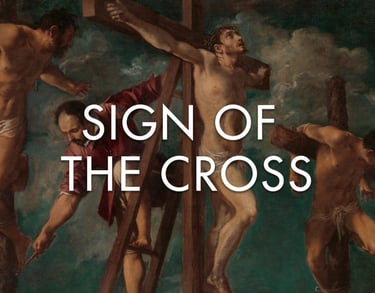

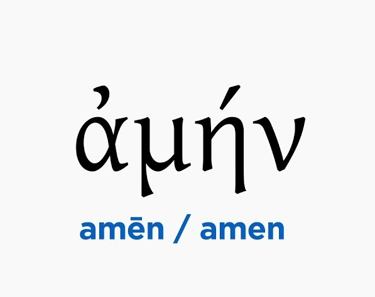

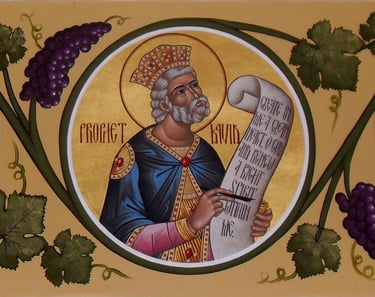

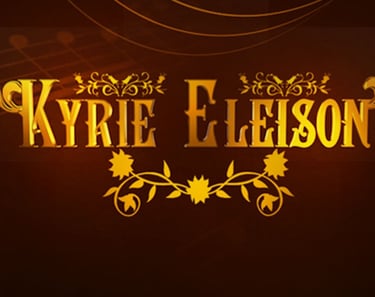

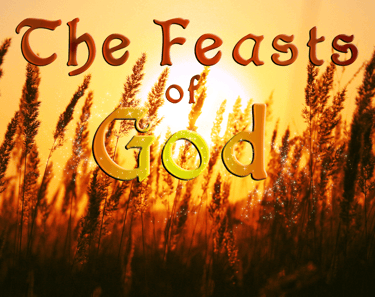

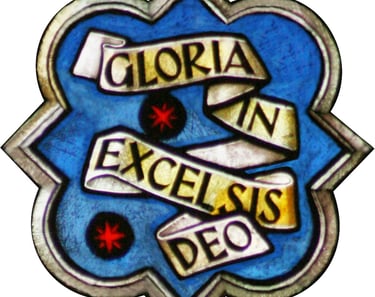

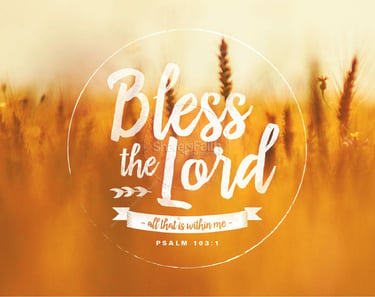

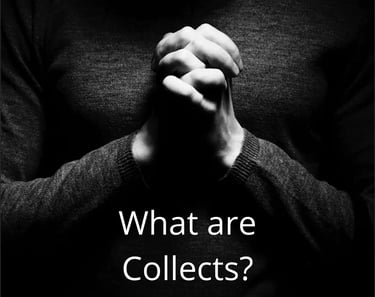

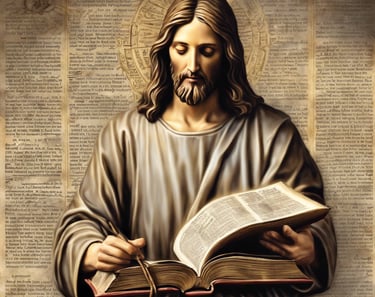



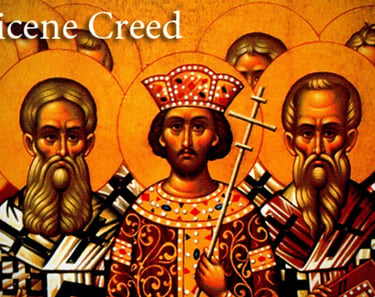







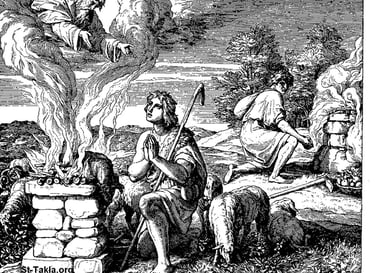

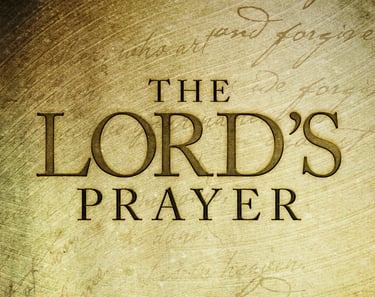

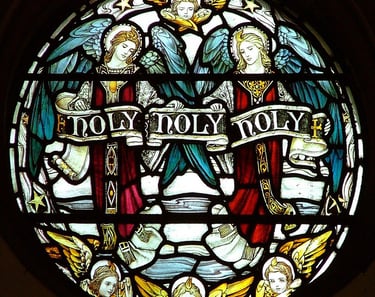

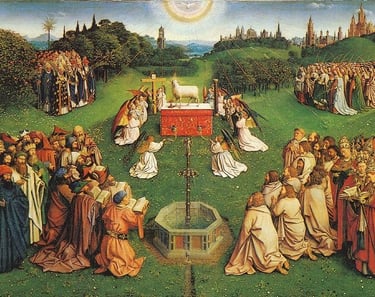

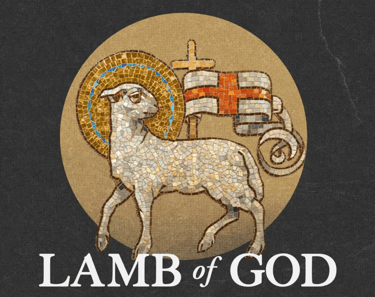

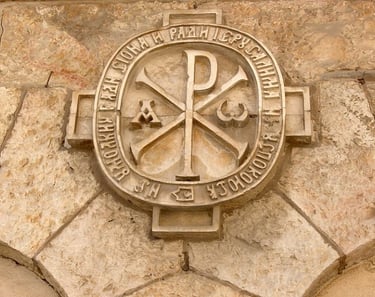

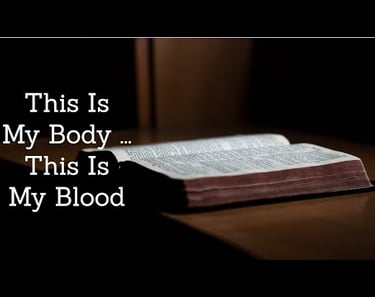

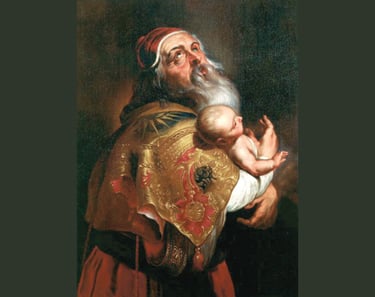

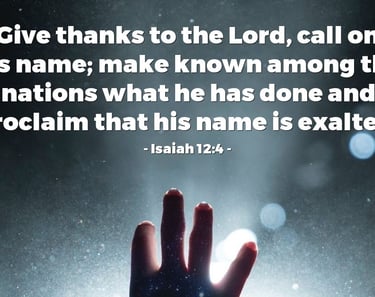





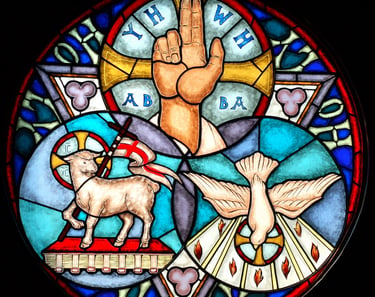

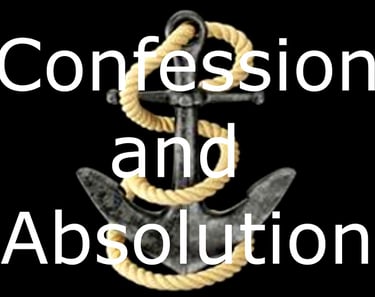



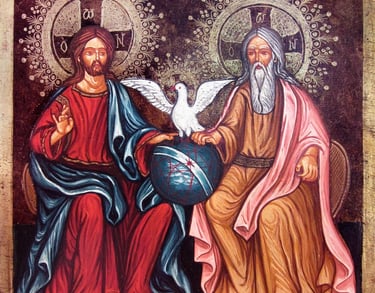

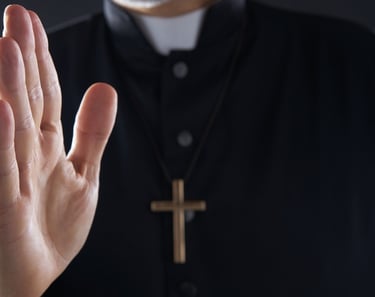

In the context of Christian worship, the Lay-terg-ee-ah, the great, charitable gift, service, and person, was, and still is today, none other than Jesus Christ Himself. Since Jesus promised that “Where two or three are gathered in My name, there am I among them.” (Matthew 18:20), the liturgical form of worship confesses that Jesus is truly and bodily present as the great liturgist who serves His church with His lavish gifts of Word and Sacrament for the forgiveness of sins.
In the Divine Service, then, Christians do not gather to serve God, but rather, to be served by God. It is very much like being invited into the upper room with Jesus and His disciples. There, Jesus, as the great liturgist, served his disciples by washing their feet and by giving them bread and wine to eat and to drink which He said is His very body and blood given and shed for the forgiveness of sins.
Upon receiving this service from God and His good gifts, the church responds with expressions of gratitude through praise and thanksgiving, for, it is good, right, and salutary, that the church should at all times, and in all places, give thanks to God the Father almighty, through Jesus Christ the Lord.
In the Divine Service, Christ blesses His church by giving her the following: His, Name, His Word, and His Body and Blood. These are given in a tri-part service which is divided into: The Invocation, The Service of the Word, and The Service of the Sacrament. To learn more about this, please see the following explanations below explaining the Divine Service.
